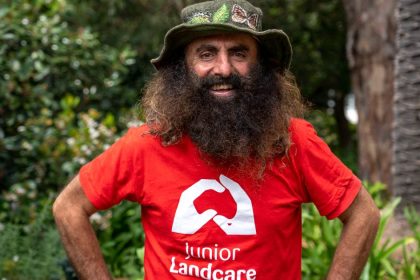Enrolments in religious private schools across Australia have grown by 35 per cent over the past decade, fuelled by a surge in student numbers in Islamic and Christian schools.
2023 Australian Bureau of Statistics (ABS) data reveals a record number of students in Catholic schools and support for faith-based education, with Islamic school enrolments doubling between 2012 and 2022 and Christian schools growing by 50 per cent.
Independent enrolments also increased to 688,638 last year, according to official data released in a report by the private school lobby group Independent Schools Australia, with the total share of private school students going from 4.1 per cent in 1970 to 17.1 per cent of pupils by last year.
A resurgence in Catholic education
In a media release by National Catholic Education Commission earlier this year, executive director Jacinta Collins pointed towards the latest Census data showing Catholic education remains the major provider of education outside of government, with enrolments steadily growing from 2017 to 2022.
“We’ve seen this growth in all faith-based non-government schools across Australia in recent years, with enrolments increasing 7.7 per cent from 2017-2022. Overall enrolments in faith-based schools increased from 1,211,242 in 2017 to 1,304,909, according to the 2022 ABS data,” Ms Collins said.
“As the largest provider of faith-based schooling in Australia, this growth shows the great importance Catholic school families place on choosing a school that meets the needs of their child and reflects their values and beliefs.”
Ms Collins claims the growth is a sign that Australian families continue to value faith-based education. “It is a timely reminder that school choice is a highly valued component of the Australian education system, and parents want an authentic faith-based education for their children.”
Ms Collins also stated that the Catholic Education Commission is extremely disappointed with the proposed reforms outlined by the Australian Law Reform Commission (ALRC) in its current inquiry into religious, educational institutions and anti-discrimination laws, claiming they threaten the ability of faith-based schools to be authentic.
“The proposed changes would remove or severely restrict the ability of Catholic schools to prioritise the employment of staff and enrolment of students from our faith background, or to operate and teach in accordance with our Catholic ethos,” Ms Collins said.
A survey by the Catholic Education Commission on school perceptions found that 63 per cent of the general population, 82 per cent of Catholics and per cent of Catholic school parents believe religious schools should “uphold the ethos and values of that faith,” claiming the school should be free to favour hiring employees who share these values.
Rethinking religious education
This increase in religious enrolment may be due to the decrease in many government state schools providing religious classes. Once freely offering church-based ‘religious instruction’, these classes would segregate students into faith-based groups in which they receive instruction in the beliefs and practices of one singular religion.
However, this form of religious education has become increasingly controversial, resulting in numerous reviews, laws, and policy changes. Since 2011, government changes requiring parents to opt their children into classes and move classes outside of school hours have drained demand, with fewer than 1000 students currently enrolled.
As a result, religious instruction has almost disappeared from Australian state schools, as government changes to make the program voluntary and shift its teaching to outside class hours have prompted student enrolments to drop by 99 per cent in 10 years.
.This decline coincides with the number of Australians identifying as Christian falling from 61 per cent in 2011 to 44 per cent in 2021.
In a recently published research paper, senior lecturer in the School of Education Culture and Society at Monash University, Dr Jennifer Bleazby, calls for education leaders, policymakers and legislators to seriously re-evaluate the place of religious education in government schools.
“Not all approaches to religious education are problematic,” says Dr Bleazby. “Classes aimed at ‘general religious education’ or world views education can foster religious literacy, intercultural understanding, positive attitudes towards minorities, and also combat extremism.
“This approach to religious education can help to alleviate social divisions, social alienation and the extremism associated with post-truth problems.”
Emphasising teaching religious education over religious instruction, Dr Bleazby concludes that these values should be readily taught by qualified teachers employed in schools, not representatives of religious organisations.







